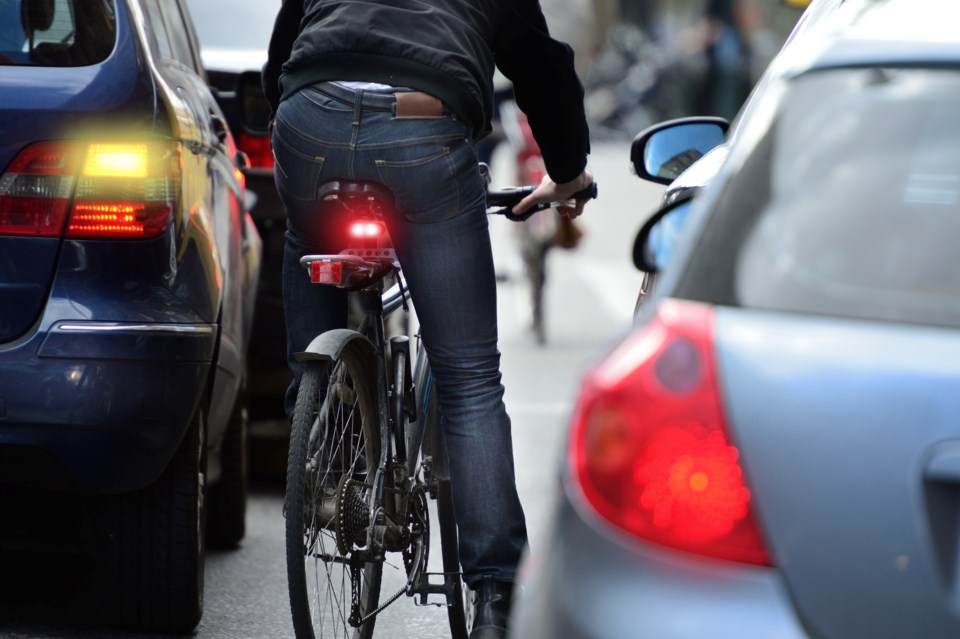The provincial government is quadrupling the fine for “dooring” in an effort to reduce cyclist collisions.
As of Sept. 1, anyone opening the door of a parked car when it’s not reasonably safe to do so – known as “dooring” – will face a fine of $368.
The new fine is four times higher than the current dooring fine of $81, which is among the lowest in Canada, according to the provincial government.
“Dooring can cause serious injury, and the new fine reflects that,” said Claire Trevena, B.C.’s minister of transportation and infrastructure, in a statement.
“But it is preventable, which is why we are also investing in public education. We want to make sure everyone who uses the roads does so safely.”
The government says that education, enforcement and the construction of active transporation infrastructure, will increase the road users' safety.
B.C. has the highest percentage of active transportation trips for work commutes out of all provinces. In 2019, 10 per cent of British Columbians who commuted to work used active transportation, such as cycling.
Active modes of transportation are also popular among young British Columbians, with 33 per cent of school-aged children and 8 per cent of all college and university students using those transportation modes.
The provincial government says the higher fine, along with a public education and awareness campaign, will help raise the profile of cyclists, and increase their safety on the roads by making drivers more aware of their actions.
“It is enormously dangerous to carelessly open a door into the pathway of a person moving on a bike,” said North Vancouver-Lonsdale MLA Bowinn Ma.
“This increased fine sends a strong signal of the level of accountability that is expected of people who are operating a vehicle, even when the engine is off.”



